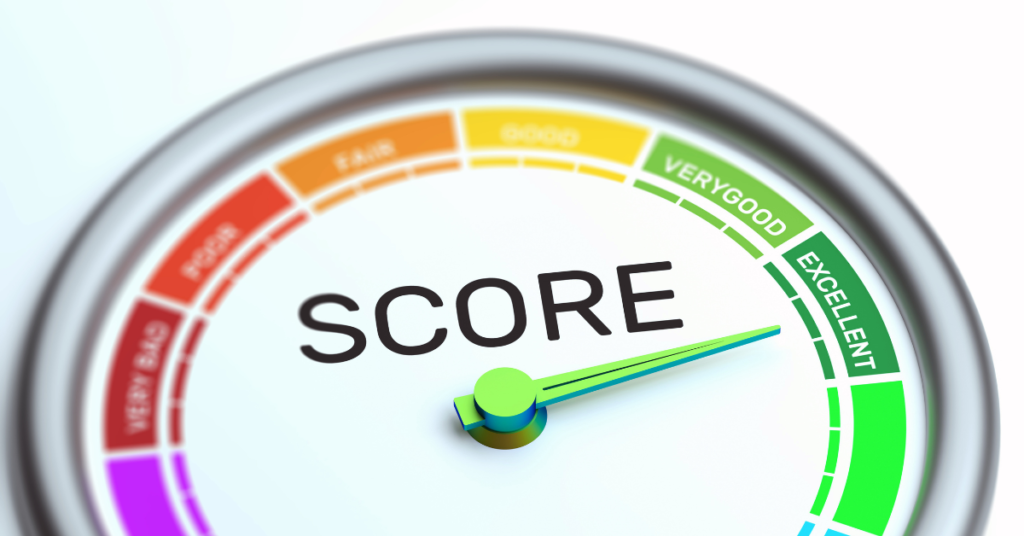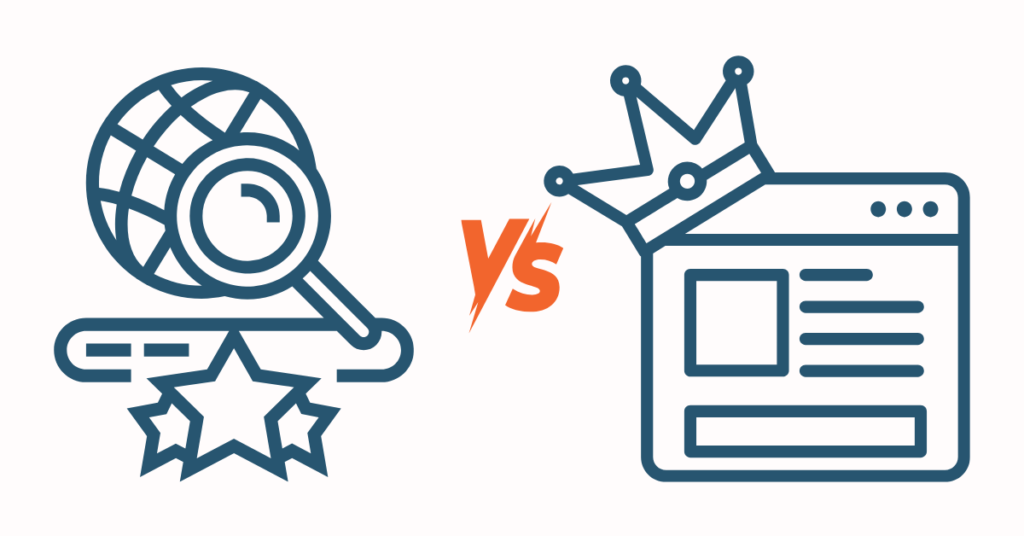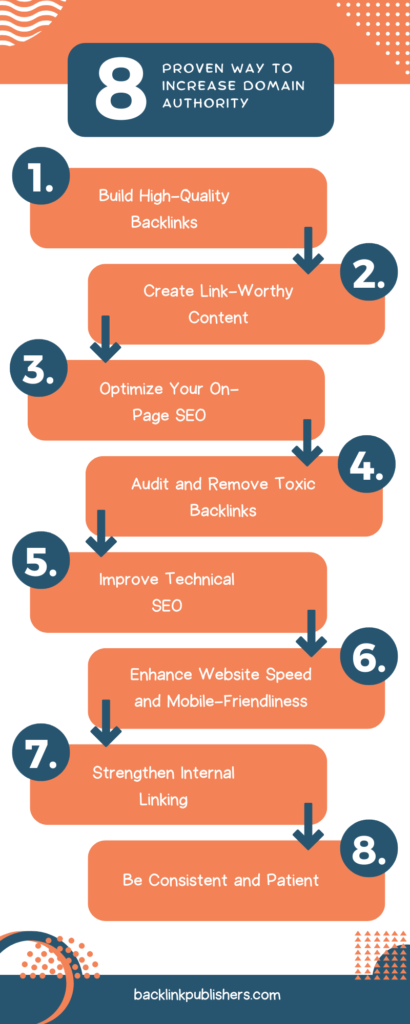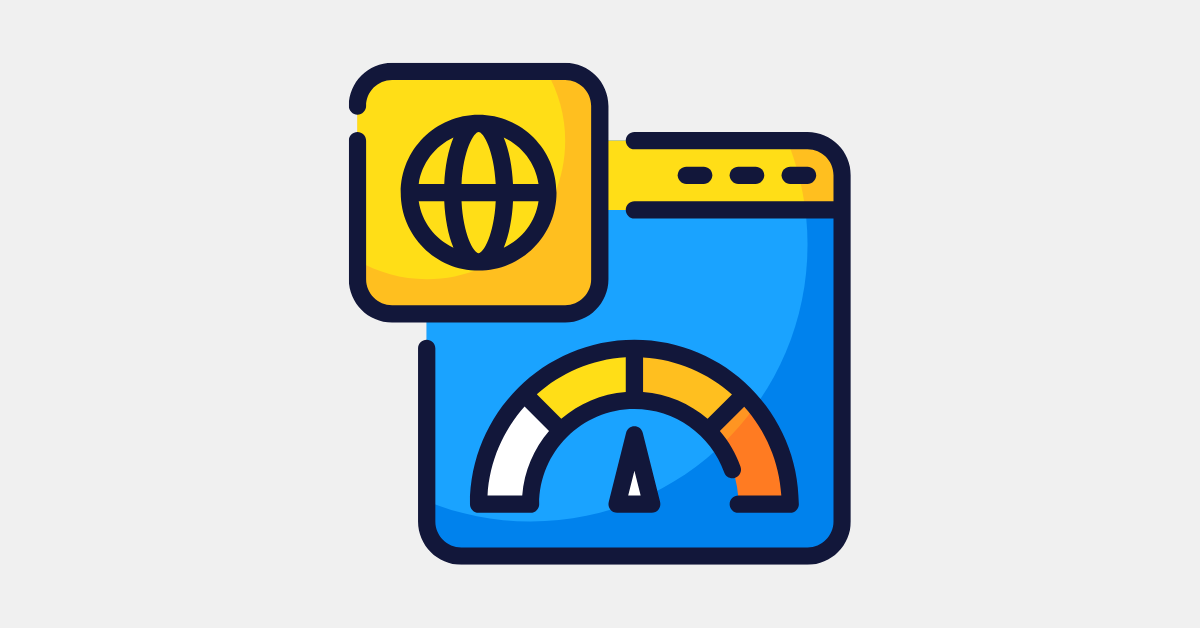Domain Authority, or DA, is a score created by Moz to show how likely your website is to rank higher in search results. It ranges from 1 to 100, with higher scores meaning better chances of ranking well.
As you know, having a website is just the start. You should also focus on making it trustworthy and easy to find online. This is why Domain Authority is so important.
A strong DA not only improves your rankings but also helps build trust with your audience.
However, improving Domain Authority is not something that happens overnight. It requires consistent effort and smart strategies.
In this guide, I’m going to share 8 actionable ways you can use to increase your DA. By the end, you’ll have clear steps to strengthen your website’s authority and boost its visibility in search results.
What Is Domain Authority?
If you’re wondering what Domain Authority, or DA, actually means, let me break it down for you. Domain Authority is a score developed by Moz that predicts how likely your website is to rank in search engine results.
This score ranges from 1 to 100. A higher score means your site has a stronger ability to rank, while a lower score indicates there’s room for improvement.
Your DA is influenced by several key factors like the quality and number of backlinks pointing to your site, the relevance and depth of your content, and how well your site is structured for both users and search engines.
When you focus on these areas, you’ll notice improvements not just in your Domain Authority but also in your overall search engine performance.
What Is a Good Domain Authority Score?
So, what qualifies as a good Domain Authority score? The truth is, it’s all relative and depends on your industry and who your competitors are.

For example, if your competitors have a DA of 20-30, you’re in a good position if your score is within or above that range. For new websites, a DA between 20 and 30 is considered average.
A DA of 40-50 is typically solid for well-established businesses. It shows that your site has built a decent level of authority and ranking potential.
When your DA crosses 60, you’re in excellent territory. This kind of score reflects a strong and trusted online presence, which is hard to achieve without consistent effort.
As you know, improving your Domain Authority doesn’t happen overnight. It takes time, strategic focus, and consistent effort to see real results. So, don’t rush it. Instead, focus on building a solid foundation step by step.
How Is Domain Authority Calculated?
You might be curious about how Domain Authority is calculated. Moz, the company behind DA, uses several factors to determine this score. Let me break down the key elements for you:

- Number and Quality of Backlinks: The more high-quality backlinks your website earns, the better your DA. However, it’s not just about quantity. Links from reputable sites carry far more weight than those from low-quality sources.
- Linking Root Domains: This refers to the number of unique websites that link to your site. Having links from multiple credible domains is more beneficial than getting numerous links from the same site.
- Website’s Overall SEO Health: This includes technical, on-page, and off-page SEO. Things like your site’s loading speed, mobile-friendliness, internal linking, and keyword optimization all play a role in improving your DA.
To check your Domain Authority and track your progress, you can use tools like Moz, Ahrefs, and SEMrush. These tools provide detailed insights into your backlink profile, DA score, and other important SEO metrics.
Domain Authority vs. Page Authority

While Domain Authority (DA) gives you an idea of your website’s overall ranking potential, Page Authority (PA) focuses on the strength of individual pages. PA is another metric developed by Moz, and like DA, it’s scored on a scale from 1 to 100.
Here’s the difference: DA measures the authority of your entire website, while PA evaluates how likely a specific page is to rank in search results.
Let me tell you that that both metrics are important. Your Domain Authority builds the overall credibility of your site, which helps search engines trust your content.
On the other hand, Page Authority determines how well specific pages, like a blog post or product page, perform in search rankings.
For example, even if your site has a high DA, a poorly optimized page might still struggle to rank. That’s why you should focus on improving both metrics to maximize your site’s visibility and performance.
How to Increase Domain Authority (8 Actionable Ways)
- Build High-Quality Backlinks
- Create Link-Worthy Content
- Optimize Your On-Page SEO
- Audit and Remove Toxic Backlinks
- Improve Technical SEO
- Enhance Website Speed and Mobile-Friendliness
- Strengthen Internal Linking
- Be Consistent and Patient

Build High-Quality Backlinks
If you want to improve your Domain Authority, building high-quality backlinks is a must. Backlinks are like votes of confidence from other websites. When trusted and relevant sites link to your content, it signals to search engines that your website is credible and worth ranking higher.
In fact, a study by Ahrefs revealed that over 66% of webpages have no backlinks, and these pages receive little to no organic traffic from Google.
To earn these valuable links, you should focus on a few proven strategies. One effective method is outreach. Reach out to websites in your industry and offer content that adds value to their audience.
Guest blogging is another powerful way to build backlinks. Write insightful articles for other websites in your niche and include a link back to your site.
You can also create shareable content, such as in-depth guides, infographics, or data-driven reports. Content like this naturally attracts backlinks because people find it useful and want to share it with their own audience.
Create Link-Worthy Content
If you want to attract backlinks naturally, your focus should be on creating content that people can’t resist sharing or referencing.
Content like detailed guides, original research, and engaging visuals often stands out and these types of content not only add value to your audience but also position your website as an authority in your niche.
For example, a comprehensive guide that solves a common problem can quickly become a go-to resource for others in your industry. Similarly, original research packed with data and insights often gets cited in blogs, articles, and even social media posts.
You should also consider creating engaging visuals like infographics or videos because these formats make complex topics easier to understand and are highly shareable, increasing your chances of earning backlinks.
As you know, content that provides unique insights or solves real problems tends to gain traction on its own. When people find value in your content, they are more likely to link to it, which ultimately helps improve your Domain Authority.
Optimize Your On-Page SEO
To improve your Domain Authority, you should start by getting the basics of on-page SEO right such as using targeted keywords, optimizing title tags, and creating SEO-friendly URLs.
I think you already know that title tags play a key role in telling search engines and users what your content is about because a well-optimized title tag that includes your primary keyword can significantly improve your chances of ranking.
Similarly, crafting SEO-friendly URLs that are short, descriptive, and include your target keyword helps both users and search engines understand your page content better.
Internal linking is another essential aspect of on-page SEO. When you link to other pages on your website, it helps distribute link equity across your site and makes it easier for search engines to crawl your content.
For example, linking to related blog posts or service pages can boost the visibility of those pages while improving user navigation.
By focusing on these on-page SEO techniques, you ensure that your website is well-structured and optimized for both search engines and visitors.
Audit and Remove Toxic Backlinks
You know that not all backlinks are good for your Domain Authority. In fact, spammy or irrelevant links can harm your site’s credibility and drag down your DA.
But the question that how it comes?
So, these toxic links often come from low-quality websites, link farms, or unrelated industries, and search engines might view them as a sign of manipulative practices.
To protect your site, you should regularly audit your backlink profile. For this you can use tools like Google Search Console and Moz Link Explorer because they allow you to identify harmful backlinks that may be affecting your rankings.
Once you’ve found these toxic links, you can use the Google Disavow Tool to tell search engines to ignore them. By disavowing bad backlinks, you safeguard your site’s reputation and ensure that only high-quality links contribute to your Domain Authority.
Improve Technical SEO
Improving your technical SEO is essential for boosting your Domain Authority. Technical SEO ensures that your website is easy for search engines to crawl, index, and understand. Here are some key actions you should take:
- Ensure HTTPS: Websites with HTTPS are considered more secure, and search engines prioritize secure sites in rankings. If your site is still on HTTP, it’s time to switch to HTTPS to protect user data and build trust.
- Fix Broken Links: Broken links create a poor user experience and signal to search engines that your site isn’t well-maintained. For this you can use tools like Broken link checker to identify and fix broken links regularly.
- Resolve Crawl Errors: Crawl errors occur when search engines can’t access certain pages on your site. Resolving these errors ensures that all your content is discoverable and properly indexed.
You should also focus on creating an XML sitemap and maintaining a clean site structure. An XML sitemap acts as a roadmap for search engines, helping them find and index your pages more efficiently.
A well-organized site structure makes navigation easier for users and ensures that your site is fully accessible to search engines.
Enhance Website Speed and Mobile-Friendliness
Fast-loading pages and a mobile-friendly design are critical for improving your Domain Authority because search engines prioritize websites that deliver a smooth and responsive user experience, and slow-loading or non-responsive sites often struggle to rank well.
Your website should load quickly, whether it’s accessed on a desktop or a mobile device. Slow pages not only frustrate users but also lead to higher bounce rates, which can negatively impact your rankings.
To identify and fix speed-related problems, you can use tools like Google PageSpeed Insights. This tool provides detailed reports on your site’s performance and offers actionable recommendations for improvement.
By focusing on speed and responsiveness, you create a better experience for your users while boosting your Domain Authority in the process.
Strengthen Internal Linking
A well-planned internal linking strategy can do wonders for your Domain Authority. Internal links help search engines crawl your site more efficiently and ensure that your pages are properly indexed.
You should focus on linking to relevant, high-priority pages within your content.
For example, if you have a blog post about a specific service, link to your service page to guide readers and search engines to that important content.
Here are a few tips to get it right:
- Use descriptive anchor text that tells users and search engines what the linked page is about.
- Link to deeper pages, not just your homepage or top-level categories, to strengthen the authority of lesser-known content.
- Ensure your links are natural and provide value to the reader, avoiding excessive or irrelevant linking.
Be Consistent and Patient
Boosting your Domain Authority requires time and steady effort. t’s not an instant process, but with persistence, you’ll start to see the results of your hard work.
You should focus on applying these strategies regularly, from building quality backlinks to optimizing your content and technical SEO. These steps work best when done consistently over time, helping you build trust with search engines and your audience.
Instead of looking for quick fixes, focus on creating high-quality content, earning trustworthy backlinks, and maintaining a well-optimized website. These practices may take a while to show results, but they deliver long-term benefits that are worth the effort.
How to Check Your Domain Authority
If you want to track your Domain Authority, there are several reliable tools you can use. Moz is the most popular choice since it developed the DA metric, but tools like Ahrefs and SEMrush also provide insights into your website’s authority and backlink profile.
When you check your DA score, remember that it’s measured on a scale from 1 to 100. A higher score means your website has a stronger ability to rank in search results.
Use this score to monitor your progress over time. For example, if your DA is improving steadily, it’s a sign that your SEO strategies are working.
You should also compare your DA with your competitors’ scores. This helps you set realistic benchmarks and understand where your website stands in your niche.
If your competitors have a DA of 40 and your site is at 25, your goal should be to match or exceed their score.
Final Thoughts
In this article, I’ve shared 8 actionable strategies to help you improve your Domain Authority. From building high-quality backlinks and creating link-worthy content to optimizing on-page SEO and improving technical aspects like speed and mobile-friendliness, every step plays an important role. I also covered how auditing toxic backlinks, strengthening internal links, and being consistent with your efforts can make a big difference in boosting your website’s authority.
Hey there👋, I’m Kate Wasley! I have over 8 years of experience in SEO, Digital Marketing, and Social Media. Based in California, USA, I love blogging and sharing my expertise with readers. My goal is to provide straightforward and useful insights into SEO, Link Building, SEO Tools and social media, helping others improve their digital marketing with simple, practical tips.
